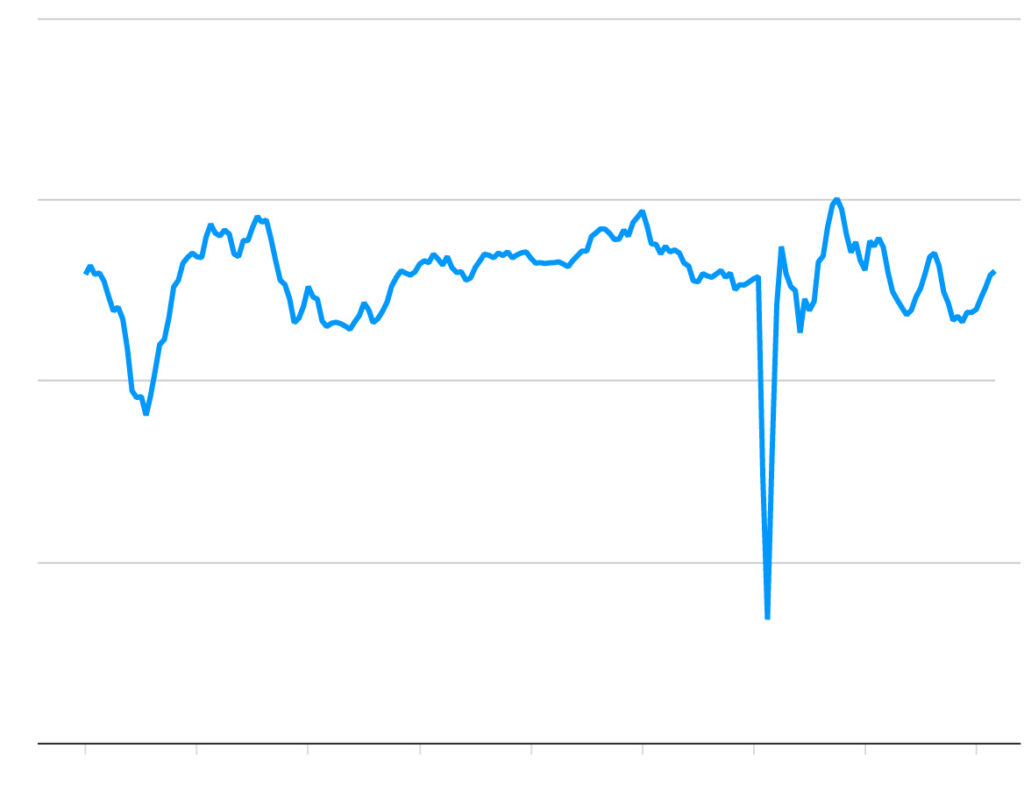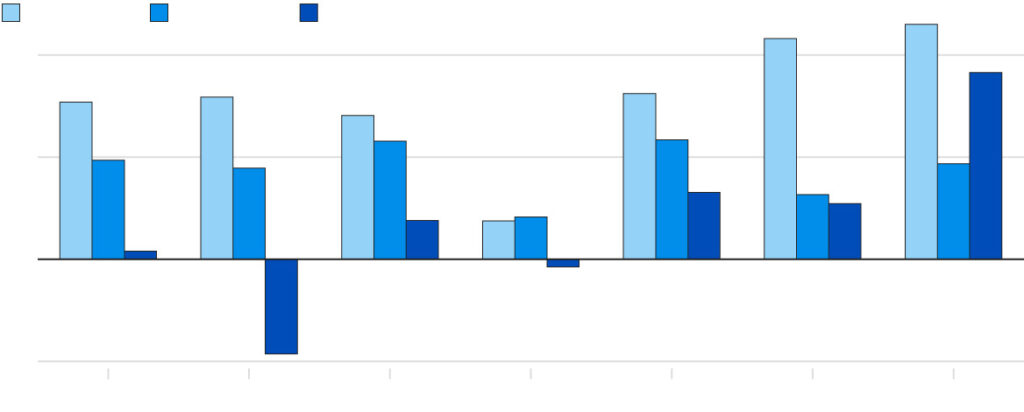
According to analysis of official data by the lobby group Make UK, the country’s manufacturing output has fallen to 12th place, with a yearly output of $259bn (£200bn). This puts it behind countries like Russia and Taiwan.
Britain’s absence from the top table is unprecedented. As of 2000, it was ranked fifth.
It is ranked lower than Mexico, which has risen to seventh place in the rankings with an output of $316bn, as well as Italy ($283bn), Russia ($287bn), and France ($265bn).
Taiwan has also surpassed the UK due to its significant influence in chip manufacturing, which has experienced remarkable growth in recent decades.
China maintained its position at the top of the rankings, boasting an impressive output of $5.06 trillion, which accounts for nearly a third of global production. The United States followed closely behind in second place with an output of $2.7 trillion.

The numbers, which compare official data from each country for 2022, highlight the significant challenge that Sir Keir Starmer’s administration faces. The Prime Minister’s efforts to revitalize British manufacturing and attract investment in future technologies like electric cars, batteries, wind turbines, as well as traditional sectors such as steel and defense, are underscored by these figures.
The Government is currently facing the challenge of numerous job losses at Tata Steel in Port Talbot, as well as a crisis at Belfast-based shipbuilder Harland & Wolff, which holds a significant Royal Navy contract worth £1.6bn.
In response, the Prime Minister has expressed a commitment to a more proactive approach, outlining an industrial strategy and making significant investments in infrastructure, including ports and battery gigafactories, through the £7bn National Wealth Fund.
Stephen Phipson, the chief executive of Make UK, expressed concern over the latest manufacturing output figures, emphasizing the need for immediate action.
He stated: “This serves as a significant and alarming wake-up call, indicating that our position as a prominent manufacturing player is now in jeopardy.”
Previous administrations have neglected the opportunity to implement effective industrial strategies, unlike other nations that have successfully attracted both domestic and foreign direct investment.
“It is crucial for the UK to develop a comprehensive and lasting industrial strategy in order to maintain its position as a leading manufacturing nation. I wholeheartedly support the new government’s commitment to implementing such a plan.”
As part of his goals for the Government, Sir Keir is determined to ensure that the UK becomes the fastest-growing economy among the G7 club of nations.
However, addressing output per person will require the Government to focus on enhancing the economy’s underlying productivity.
Productivity growth has experienced a significant decline following the financial crisis. The average annual growth rate was 2.3% in the three decades leading up to 2007, but it has significantly declined to approximately 0.4% per year since then.

Based on the findings of the Resolution Foundation, the UK is currently going through a period of sluggish growth that has not been seen since 1826.
Make UK has strongly urged the Government to embrace a formal industrial strategy, a proposal that was initially developed by the Conservatives during Theresa May’s tenure but subsequently abandoned by subsequent administrations.
This would aim to highlight and provide assistance to key sectors in the UK, including aerospace, pharmaceuticals, luxury car manufacturing, and cutting-edge technologies like artificial intelligence, nuclear small modular reactors (SMRs), quantum computing, and floating offshore wind turbines.
Across the globe, significant economic powers like China, the US, and the European Union are investing massive amounts of money into various strategies, all in pursuit of establishing their dominance.
Nevertheless, there are economists who have expressed concerns about the potential risks of Whitehall “picking winners” due to increased state intervention in manufacturing as part of an industrial strategy.
Meanwhile, the manufacturing sector has experienced a significant decline in its contribution to the economy over the past three decades, as Britain has shifted its focus towards services.
In 1990, manufacturing made up 17% of the UK economy. However, according to official figures, it now only accounts for 9.4%.
According to Jonathan Reynolds, the Business and Trade Secretary, the current state of the global manufacturing market highlights its intense competitiveness.
“If you remain stagnant, like previous administrations, there is a chance that other nations will surpass you.”
Britain’s manufacturing sector is flourishing and achieving great success. However, these figures clearly indicate that the industry is in dire need of stability and a well-defined long-term strategy.
Our new industrial strategy is designed to boost UK manufacturing, promote economic growth, and create a more equitable and sustainable future.